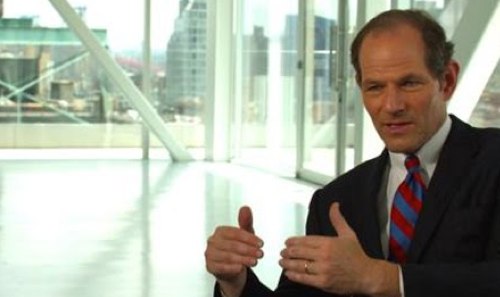REVIEW: Inside Job Looks Under the Hood of the Financial Crisis and Finds Nothing Pretty
 The press notes for Inside Job, Charles Ferguson's debilitating cross-section of the financial crisis, include a glossary of the exotic terms used within. The inclusion is both handy and beside the point: Though it steadfastly defines the snow-blinding language and dialectic crimes of its native speakers (CDO before CDS except after CRA?), even more than it wants to inform Inside Job seeks to enrage. Ferguson, a one-man, self-appointed oversight committee whose last film, No End In Sight, shed brutal light on the mistakes made in the first months of the Iraq war, here balances that film's white-burning heat with a little old-fashioned whup-ass, using every skill in his arsenal to position the film's version of events as the righteous truth. The blow is mortal, but it's not entirely clean.
The press notes for Inside Job, Charles Ferguson's debilitating cross-section of the financial crisis, include a glossary of the exotic terms used within. The inclusion is both handy and beside the point: Though it steadfastly defines the snow-blinding language and dialectic crimes of its native speakers (CDO before CDS except after CRA?), even more than it wants to inform Inside Job seeks to enrage. Ferguson, a one-man, self-appointed oversight committee whose last film, No End In Sight, shed brutal light on the mistakes made in the first months of the Iraq war, here balances that film's white-burning heat with a little old-fashioned whup-ass, using every skill in his arsenal to position the film's version of events as the righteous truth. The blow is mortal, but it's not entirely clean.
Helplessness is what most of us felt during the fall of 2008; people like me, who couldn't quite understand the import of an American investment banking firm and an insurance conglomerate tanking, initially looked to the faces of our parents to see how serious this might be. In a living room in Toronto, where I experienced September 15th, those faces looked sort of like their spoiled, alcoholic cousin had finally driven his truck into a wall. It didn't have to happen, but nobody was surprised.
That this was a preventable catastrophe is a position Ferguson takes as rabidly as an ace attorney for the decent, hard-working people of the U.S.A. That this was a catastrophe made inevitable by not just the greed and corruption of the system and those empowering it but a culture of greed, entitlement, and willfully blind eyes that extends beyond the financial sector is a position that's only half drawn. As much as I love seeing scoundrels pinned to the wall by the facts, and as satisfying as it is to listen to Ferguson, who questions his subjects off camera, eventually lose his assiduous cool, the issue feels more complicated than the impulse to vilify allows it to be.
Which is not to say things don't get plenty complicated: Helpfully segmented into five chapters, Ferguson has assembled a weighty crew of Wall Street experts, players, and refugees. The slow process of market deregulation, which began during the Reagan years and culminated during Bush II (with a crucial assist from Clinton), ushered in an era of financial engineers -- bankers and investors who looked at the industry and thought really hard about how to game it. A slow moral slide accompanied these "innovations," and it happened in such perfect, symbiotic tandem that today many of those engineers fail to see that it happened at all. This is just business!
Pages: 1 2

Comments
That's what she said